
The Importance of Aligning Company Values with Business Trajectory
Roy E. Disney of Walt Disney Co., once said, “When your values are clear to you, making decisions becomes easier.”
Business leaders make hundreds of decisions per day. Multiply that by the dozens or even hundreds of leaders in your organization and it seems like an impossible task to coordinate and make sure everyone is on the same page.
Good news, there is a shortcut — values. These are the core pillars that tie your entire business together.
For a simple example, think about a customer service situation. There is an unhappy customer who had a sub-par experience with the brand and is complaining about it. Let’s imagine that brand is Chick-fil-a or American Express — companies dedicated to good customer service — you can picture that they would handle this customer’s complaint with grace, make the situation right, and turn that negative experience into a lifetime customer.
Imagine that same situation, but it’s a brand which does not make customer service a pillar of the brand — maybe a cable company or a rental car company. It is likely the company does not handle the situation quite the same and loses that customer forever. Why? They prioritize other values and thus don’t spend the money and effort it takes to have a great customer service arm.
This is why values are so critical to the culture and direction of a business. What your brand stands for becomes the guide rails for all of those hundreds of decisions that get made by your employees daily.
Values as Decision-Making Tools
One way to ensure an easier and more cohesive decision-making process is by using company values as the guide. These core principles act as a framework for leaders and employees to follow, making it easier to identify what options align with business trajectory.
- Prioritization — When faced with multiple options, values help rank and prioritize decisions based on their importance and relevance to the company’s overall goals. Which project should have the most urgent deadline — one about infrastructure or one about innovation? If your company has strong values around consistent quality and safety, it should be an easy answer.
- Consistency — By using values, leaders ensure consistency in decision-making throughout the organization, avoiding contradictions and keeping the team aligned. When a business has strong values, the “left hand/right hand” issue that plagues many companies isn’t a problem because you know you are all pulling the same direction even without direct communication.
- Branding — Values are important as guide rails internally, but it also becomes a key part of your external branding. If your external brand is all about kindness and being a family company, then you should have great parental leave for your own employees.
Putting Values into Action
To make the most of company values, consider the following steps:
- Identify and define core values — Start by defining a list of values that represent the beliefs and ideals of the organization. These should resonate with the vision and mission, and ultimately guide business strategies. Get your leaders together and discuss which brands they admire. Decide on what type of company you want to be, unbounded by the constraints of current budgets and current market conditions.
- Communicate and share values with the team — Clearly communicate the values to all employees, explaining the meaning and relevance within the organization. This can foster a shared understanding and create a strong company culture. Ultimately they are the ones who will put these values into everyday actions.
- Reward behavior that demonstrates your values — When an employee’s behavior is in line with your values, make sure you reward them. It will show that employee that you’ve noticed and send a message to other employees that your values are not just some words on paper. For best results, reward with cash and do it with as little time delay as possible.
- Incorporate values in decisions and action — When making decisions or implementing changes, keep the company values in mind. Evaluate if the course of action aligns with the values, ensuring they are consistently reinforced.
- Leaders are models of behavior — Your leaders are the beacons for values-driven behavior in your company. Your employees are watching how they deal with tough decisions and even small ones. Nothing hurts a company’s culture like a leader with a “do as I say, not as I do” mode of operation.
Values have a big impact on the bottom line
One often-overlooked aspect of values alignment is the impact it has on a company’s financial performance. Companies that are consistent in adhering to their core values often see positive impacts on their financial success.
According to Delloitte, “Many skeptics still believe there is an inherent trade-off between purpose and profit; values and value. We disagree, and there is significant data to back up our position.” Their research found that values-driven companies grow four times faster than average.
The benefits are not isolated to one arena. To name a few benefits, companies who live into their values see better customer loyalty, less employee turnover, higher job application value, and can weather bad PR more effectively.
At Whistle, one of our core values is that people make the difference in any organization. That’s why we built a system which allows managers to send cash rewards to their employees. This is the best, most straightforward path to show that employee who is demonstrating your values to “keep it up.”
WHISTLE, THE EMPLOYEE LOYALTY APP
There are many factors that influence employee loyalty but Whistle is the first employee loyalty app specifically designed for that purpose. By leveraging Whistle and integrating with other programs, Whistle can help companies improve both their top and bottom line.
In a recent case study, Whistle helped a manufacturing company reduce turnover by 26% in just 90 days through a redesigned onboarding program. Whistle’s employee loyalty app brought the company’s on-boarding process into the digital age and put it in every employee’s pocket. Employees raved about the mobile-first experience and cash reward system.
Companies are using Whistle to help people-managers improve relationships with their direct reports, rethinking incentives and rewards, and even changing their approach to culture – building a more inclusive workplace and helping to attract quality candidates.
Contact us for a free demo and better understand how much you can improve employee loyalty when using an employee loyalty app!
Forget the Bells. You Just Need Whistle.
Overwhelmed? Let us help you build a better onboarding experience, improve leadership training, or find innovative ways to appreciate your people — start by speaking to a consultant for free.
Additional posts you might find interesting
 /wp-content/uploads/2025/07/FI-AI-in-construction-July-2025.png 780 940 Chris Dornfeld /wp-content/uploads/2024/12/Dk-Blue-Whistle-Rewards-Logo-with-Text-300x110.png Chris Dornfeld2025-07-15 15:20:192025-07-15 15:20:19AI in Safety: Predicting and Preventing Hazards Before They Happen
/wp-content/uploads/2025/07/FI-AI-in-construction-July-2025.png 780 940 Chris Dornfeld /wp-content/uploads/2024/12/Dk-Blue-Whistle-Rewards-Logo-with-Text-300x110.png Chris Dornfeld2025-07-15 15:20:192025-07-15 15:20:19AI in Safety: Predicting and Preventing Hazards Before They Happen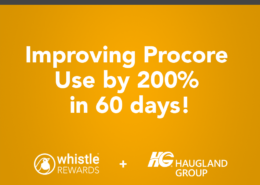 /wp-content/uploads/2025/04/FI-Haugland-Group-Case-Study.png 780 940 Chris Dornfeld /wp-content/uploads/2024/12/Dk-Blue-Whistle-Rewards-Logo-with-Text-300x110.png Chris Dornfeld2025-04-30 20:53:522025-04-30 20:53:52Haugland Improves Procore Use by 200%
/wp-content/uploads/2025/04/FI-Haugland-Group-Case-Study.png 780 940 Chris Dornfeld /wp-content/uploads/2024/12/Dk-Blue-Whistle-Rewards-Logo-with-Text-300x110.png Chris Dornfeld2025-04-30 20:53:522025-04-30 20:53:52Haugland Improves Procore Use by 200%
Improving Mental Health in Construction: How Recognition and Rewards Can Save Lives
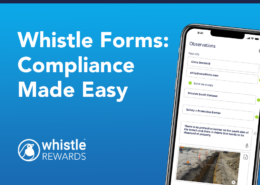 /wp-content/uploads/2025/04/FI-Whistle-Forms.png 780 940 Chris Dornfeld /wp-content/uploads/2024/12/Dk-Blue-Whistle-Rewards-Logo-with-Text-300x110.png Chris Dornfeld2025-04-28 17:58:512025-04-28 17:58:51Whistle Forms: Compliance Made Easy
/wp-content/uploads/2025/04/FI-Whistle-Forms.png 780 940 Chris Dornfeld /wp-content/uploads/2024/12/Dk-Blue-Whistle-Rewards-Logo-with-Text-300x110.png Chris Dornfeld2025-04-28 17:58:512025-04-28 17:58:51Whistle Forms: Compliance Made Easy
5 Ways Safety Leaders Can Boost Employee Retention

Company Merchandise Stores
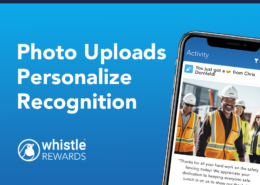 /wp-content/uploads/2025/01/FI-Photo-Uploads-for-Recognition.png 780 940 Chris Dornfeld /wp-content/uploads/2024/12/Dk-Blue-Whistle-Rewards-Logo-with-Text-300x110.png Chris Dornfeld2025-01-12 21:53:032025-03-05 00:33:30Whistle Rewards Launches New Photo Uploads Feature
/wp-content/uploads/2025/01/FI-Photo-Uploads-for-Recognition.png 780 940 Chris Dornfeld /wp-content/uploads/2024/12/Dk-Blue-Whistle-Rewards-Logo-with-Text-300x110.png Chris Dornfeld2025-01-12 21:53:032025-03-05 00:33:30Whistle Rewards Launches New Photo Uploads Feature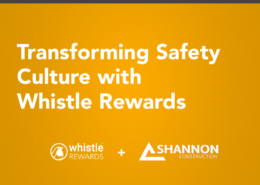
Transforming Safety Culture with Whistle Rewards
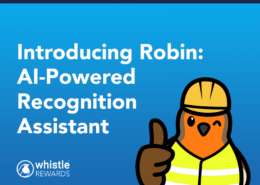 /wp-content/uploads/2024/12/FI-AI-powered-recognition.png 780 940 Chris Dornfeld /wp-content/uploads/2024/12/Dk-Blue-Whistle-Rewards-Logo-with-Text-300x110.png Chris Dornfeld2024-12-12 19:07:322024-12-12 19:40:44Whistle Rewards’ New AI-Powered Recognition Assistant
/wp-content/uploads/2024/12/FI-AI-powered-recognition.png 780 940 Chris Dornfeld /wp-content/uploads/2024/12/Dk-Blue-Whistle-Rewards-Logo-with-Text-300x110.png Chris Dornfeld2024-12-12 19:07:322024-12-12 19:40:44Whistle Rewards’ New AI-Powered Recognition Assistant
Why Rewards Work So Well with Project Management Tools in Construction

23% of construction companies plan to add more monetary rewards in 2025
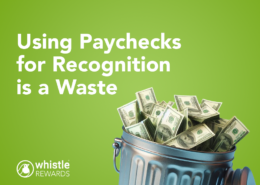
Using Paychecks for Recognition is a Waste

How Technology Will Reshape the Construction Workforce in the Next Five Years

Shannon Construction increases Daily Log reporting in Procore by 863%!
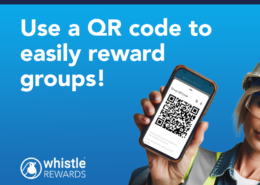 /wp-content/uploads/2024/10/FI-Use-QR-codes-to-easily-send-group-rewards.png 780 940 Chris Dornfeld /wp-content/uploads/2024/12/Dk-Blue-Whistle-Rewards-Logo-with-Text-300x110.png Chris Dornfeld2024-10-01 12:40:562024-10-01 12:40:56Scan QR codes to add people to a spot reward group
/wp-content/uploads/2024/10/FI-Use-QR-codes-to-easily-send-group-rewards.png 780 940 Chris Dornfeld /wp-content/uploads/2024/12/Dk-Blue-Whistle-Rewards-Logo-with-Text-300x110.png Chris Dornfeld2024-10-01 12:40:562024-10-01 12:40:56Scan QR codes to add people to a spot reward group
Smartphones: A better way to engage
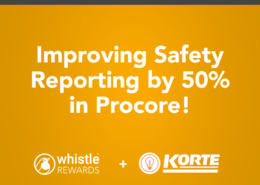 /wp-content/uploads/2024/09/FI-Case-Study-Korte-Safety-Reporting.png 780 940 Chris Dornfeld /wp-content/uploads/2024/12/Dk-Blue-Whistle-Rewards-Logo-with-Text-300x110.png Chris Dornfeld2024-09-01 13:42:572024-12-08 22:51:03Korte Boosts Safety Reporting by 50%
/wp-content/uploads/2024/09/FI-Case-Study-Korte-Safety-Reporting.png 780 940 Chris Dornfeld /wp-content/uploads/2024/12/Dk-Blue-Whistle-Rewards-Logo-with-Text-300x110.png Chris Dornfeld2024-09-01 13:42:572024-12-08 22:51:03Korte Boosts Safety Reporting by 50% /wp-content/uploads/2024/08/FI-Employee-Rewards-frequency-matters-more.png 780 940 Drew Carter /wp-content/uploads/2024/12/Dk-Blue-Whistle-Rewards-Logo-with-Text-300x110.png Drew Carter2024-08-26 17:17:592024-09-12 15:02:07Employee Rewards: Frequency matters more
/wp-content/uploads/2024/08/FI-Employee-Rewards-frequency-matters-more.png 780 940 Drew Carter /wp-content/uploads/2024/12/Dk-Blue-Whistle-Rewards-Logo-with-Text-300x110.png Drew Carter2024-08-26 17:17:592024-09-12 15:02:07Employee Rewards: Frequency matters more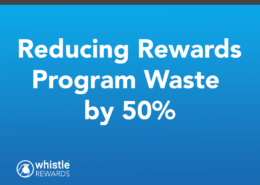 /wp-content/uploads/2024/08/FI-Case-Study-Reducing-Rewards-Program-Waste.png 780 940 Drew Carter /wp-content/uploads/2024/12/Dk-Blue-Whistle-Rewards-Logo-with-Text-300x110.png Drew Carter2024-08-23 21:20:102024-08-28 15:14:51Reducing reward waste by 50%
/wp-content/uploads/2024/08/FI-Case-Study-Reducing-Rewards-Program-Waste.png 780 940 Drew Carter /wp-content/uploads/2024/12/Dk-Blue-Whistle-Rewards-Logo-with-Text-300x110.png Drew Carter2024-08-23 21:20:102024-08-28 15:14:51Reducing reward waste by 50%
Whistle Rewards Selected to Join Google AI Academy for American Infrastructure

Why Rewarding Your Construction Staff Is More Than Just “Paying Twice”

Behavioral Science in the Construction Industry: Avoiding the Boomerang Effect
 /wp-content/uploads/2024/08/FI-Case-Study-better-learning-incentives.png 780 940 Chris Dornfeld /wp-content/uploads/2024/12/Dk-Blue-Whistle-Rewards-Logo-with-Text-300x110.png Chris Dornfeld2024-07-27 16:32:192024-08-28 15:42:09Learning Incentives Save Time and Money
/wp-content/uploads/2024/08/FI-Case-Study-better-learning-incentives.png 780 940 Chris Dornfeld /wp-content/uploads/2024/12/Dk-Blue-Whistle-Rewards-Logo-with-Text-300x110.png Chris Dornfeld2024-07-27 16:32:192024-08-28 15:42:09Learning Incentives Save Time and Money
Whistle Rewards: BuiltWorlds 2024 Start-up Competition Winner!

Upload Funds To Your Whistle Rewards Account
 /wp-content/uploads/2024/07/FI-The-Ugly-Truth-about-Gift-Cards.png 780 940 Drew Carter /wp-content/uploads/2024/12/Dk-Blue-Whistle-Rewards-Logo-with-Text-300x110.png Drew Carter2024-07-14 19:01:272024-07-14 19:01:27The Ugly Truth About Gift Cards
/wp-content/uploads/2024/07/FI-The-Ugly-Truth-about-Gift-Cards.png 780 940 Drew Carter /wp-content/uploads/2024/12/Dk-Blue-Whistle-Rewards-Logo-with-Text-300x110.png Drew Carter2024-07-14 19:01:272024-07-14 19:01:27The Ugly Truth About Gift Cards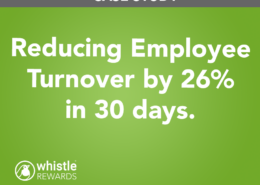
Reducing Employee Turnover by 26% in 30 Days
 /wp-content/uploads/2024/06/FI-Crowding-in-motivation.png 780 940 Chris Dornfeld /wp-content/uploads/2024/12/Dk-Blue-Whistle-Rewards-Logo-with-Text-300x110.png Chris Dornfeld2024-06-05 19:40:462024-06-05 19:40:46Crowding-in Motivation for Lasting Impact
/wp-content/uploads/2024/06/FI-Crowding-in-motivation.png 780 940 Chris Dornfeld /wp-content/uploads/2024/12/Dk-Blue-Whistle-Rewards-Logo-with-Text-300x110.png Chris Dornfeld2024-06-05 19:40:462024-06-05 19:40:46Crowding-in Motivation for Lasting Impact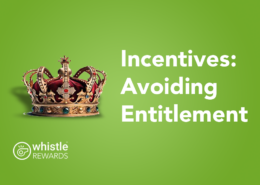 /wp-content/uploads/2024/04/FI-Incentives-avoiding-entitlement.png 780 940 Chris Dornfeld /wp-content/uploads/2024/12/Dk-Blue-Whistle-Rewards-Logo-with-Text-300x110.png Chris Dornfeld2024-04-17 22:20:382024-04-17 22:20:38Incentives: Avoiding Entitlement with these 3 steps
/wp-content/uploads/2024/04/FI-Incentives-avoiding-entitlement.png 780 940 Chris Dornfeld /wp-content/uploads/2024/12/Dk-Blue-Whistle-Rewards-Logo-with-Text-300x110.png Chris Dornfeld2024-04-17 22:20:382024-04-17 22:20:38Incentives: Avoiding Entitlement with these 3 steps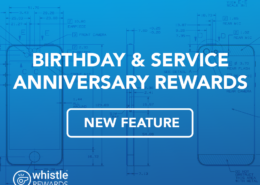 /wp-content/uploads/2024/04/FI-Birthday-and-Service-Anniversary-Rewards.png 780 940 Chris Dornfeld /wp-content/uploads/2024/12/Dk-Blue-Whistle-Rewards-Logo-with-Text-300x110.png Chris Dornfeld2024-04-11 20:45:052024-04-11 20:45:05Whistle’s New Birthday and Service Anniversary Rewards
/wp-content/uploads/2024/04/FI-Birthday-and-Service-Anniversary-Rewards.png 780 940 Chris Dornfeld /wp-content/uploads/2024/12/Dk-Blue-Whistle-Rewards-Logo-with-Text-300x110.png Chris Dornfeld2024-04-11 20:45:052024-04-11 20:45:05Whistle’s New Birthday and Service Anniversary Rewards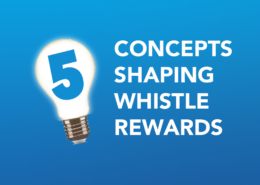 /wp-content/uploads/2024/04/FI-5-concepts-shaping-whistle-rewards.png 780 940 Chris Dornfeld /wp-content/uploads/2024/12/Dk-Blue-Whistle-Rewards-Logo-with-Text-300x110.png Chris Dornfeld2024-04-02 20:33:482024-04-17 14:09:535 Concepts That Shape Whistle Rewards
/wp-content/uploads/2024/04/FI-5-concepts-shaping-whistle-rewards.png 780 940 Chris Dornfeld /wp-content/uploads/2024/12/Dk-Blue-Whistle-Rewards-Logo-with-Text-300x110.png Chris Dornfeld2024-04-02 20:33:482024-04-17 14:09:535 Concepts That Shape Whistle Rewards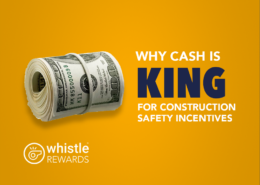 /wp-content/uploads/2024/04/FI-Cash-is-king.png 780 940 Chris Dornfeld /wp-content/uploads/2024/12/Dk-Blue-Whistle-Rewards-Logo-with-Text-300x110.png Chris Dornfeld2024-04-02 16:58:332024-04-02 16:58:33Why Cash is King for Construction Safety Incentives
/wp-content/uploads/2024/04/FI-Cash-is-king.png 780 940 Chris Dornfeld /wp-content/uploads/2024/12/Dk-Blue-Whistle-Rewards-Logo-with-Text-300x110.png Chris Dornfeld2024-04-02 16:58:332024-04-02 16:58:33Why Cash is King for Construction Safety Incentives /wp-content/uploads/2024/03/FI-How-To-Send-a-Spot-Reward-in-Procore.png 780 940 Chris Dornfeld /wp-content/uploads/2024/12/Dk-Blue-Whistle-Rewards-Logo-with-Text-300x110.png Chris Dornfeld2024-03-21 03:42:242024-06-14 15:33:38Send a Spot Reward in Procore
/wp-content/uploads/2024/03/FI-How-To-Send-a-Spot-Reward-in-Procore.png 780 940 Chris Dornfeld /wp-content/uploads/2024/12/Dk-Blue-Whistle-Rewards-Logo-with-Text-300x110.png Chris Dornfeld2024-03-21 03:42:242024-06-14 15:33:38Send a Spot Reward in Procore
Add Incentives to Procore Submittal Log to Boost Profitability and Safety.
 /wp-content/uploads/2024/02/FI-Combatting-Burnout-in-Healthcare.png 418 576 Chris Dornfeld /wp-content/uploads/2024/12/Dk-Blue-Whistle-Rewards-Logo-with-Text-300x110.png Chris Dornfeld2024-02-25 13:16:362024-02-25 13:18:55Combating Burnout in Healthcare with Rewards and Recognition
/wp-content/uploads/2024/02/FI-Combatting-Burnout-in-Healthcare.png 418 576 Chris Dornfeld /wp-content/uploads/2024/12/Dk-Blue-Whistle-Rewards-Logo-with-Text-300x110.png Chris Dornfeld2024-02-25 13:16:362024-02-25 13:18:55Combating Burnout in Healthcare with Rewards and Recognition /wp-content/uploads/2024/02/FI-harnessing-the-power-of-rewards-in-construction.png 418 576 Chris Dornfeld /wp-content/uploads/2024/12/Dk-Blue-Whistle-Rewards-Logo-with-Text-300x110.png Chris Dornfeld2024-02-24 00:43:172024-03-24 13:23:00Harnessing the Power of Timely Rewards in Construction
/wp-content/uploads/2024/02/FI-harnessing-the-power-of-rewards-in-construction.png 418 576 Chris Dornfeld /wp-content/uploads/2024/12/Dk-Blue-Whistle-Rewards-Logo-with-Text-300x110.png Chris Dornfeld2024-02-24 00:43:172024-03-24 13:23:00Harnessing the Power of Timely Rewards in Construction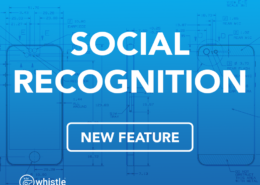 /wp-content/uploads/2024/02/FI-Social-Recognition.png 780 940 Chris Dornfeld /wp-content/uploads/2024/12/Dk-Blue-Whistle-Rewards-Logo-with-Text-300x110.png Chris Dornfeld2024-02-21 22:58:482024-02-24 00:50:53Whistle Reward’s New Recognition Tools
/wp-content/uploads/2024/02/FI-Social-Recognition.png 780 940 Chris Dornfeld /wp-content/uploads/2024/12/Dk-Blue-Whistle-Rewards-Logo-with-Text-300x110.png Chris Dornfeld2024-02-21 22:58:482024-02-24 00:50:53Whistle Reward’s New Recognition Tools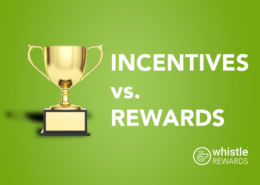 /wp-content/uploads/2024/04/FI-incentives-versus-rewards.png 780 940 Chris Dornfeld /wp-content/uploads/2024/12/Dk-Blue-Whistle-Rewards-Logo-with-Text-300x110.png Chris Dornfeld2024-02-03 20:42:142024-04-03 21:18:05Incentives versus Rewards
/wp-content/uploads/2024/04/FI-incentives-versus-rewards.png 780 940 Chris Dornfeld /wp-content/uploads/2024/12/Dk-Blue-Whistle-Rewards-Logo-with-Text-300x110.png Chris Dornfeld2024-02-03 20:42:142024-04-03 21:18:05Incentives versus Rewards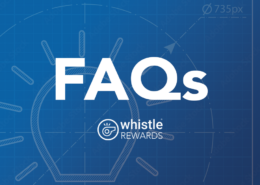 /wp-content/uploads/2024/01/FI-FAQs.png 780 940 Chris Dornfeld /wp-content/uploads/2024/12/Dk-Blue-Whistle-Rewards-Logo-with-Text-300x110.png Chris Dornfeld2024-01-05 16:07:132024-03-29 15:15:13New Client Frequently Asked Questions
/wp-content/uploads/2024/01/FI-FAQs.png 780 940 Chris Dornfeld /wp-content/uploads/2024/12/Dk-Blue-Whistle-Rewards-Logo-with-Text-300x110.png Chris Dornfeld2024-01-05 16:07:132024-03-29 15:15:13New Client Frequently Asked Questions /wp-content/uploads/2024/01/FI-How-To-add-Whistle-Rewards-to-Procore.png 780 940 Chris Dornfeld /wp-content/uploads/2024/12/Dk-Blue-Whistle-Rewards-Logo-with-Text-300x110.png Chris Dornfeld2024-01-01 12:12:382024-04-03 22:08:43Add Whistle Rewards to your Procore Account
/wp-content/uploads/2024/01/FI-How-To-add-Whistle-Rewards-to-Procore.png 780 940 Chris Dornfeld /wp-content/uploads/2024/12/Dk-Blue-Whistle-Rewards-Logo-with-Text-300x110.png Chris Dornfeld2024-01-01 12:12:382024-04-03 22:08:43Add Whistle Rewards to your Procore Account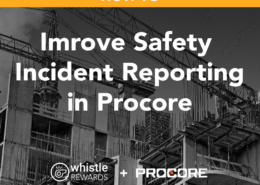 /wp-content/uploads/2024/03/FI-How-To-Improve-Safety-Incedent-Reporting-in-Procore.png 780 940 Chris Dornfeld /wp-content/uploads/2024/12/Dk-Blue-Whistle-Rewards-Logo-with-Text-300x110.png Chris Dornfeld2023-12-15 16:43:012024-06-14 15:35:08Improving Safety Incident Reporting in Procore
/wp-content/uploads/2024/03/FI-How-To-Improve-Safety-Incedent-Reporting-in-Procore.png 780 940 Chris Dornfeld /wp-content/uploads/2024/12/Dk-Blue-Whistle-Rewards-Logo-with-Text-300x110.png Chris Dornfeld2023-12-15 16:43:012024-06-14 15:35:08Improving Safety Incident Reporting in Procore /wp-content/uploads/2023/11/Gratitude-w-title-narrower.png 450 583 Chris Dornfeld /wp-content/uploads/2024/12/Dk-Blue-Whistle-Rewards-Logo-with-Text-300x110.png Chris Dornfeld2023-11-19 01:44:372023-11-19 01:51:52Tis the Season to Be Jolly and Practice Gratitude
/wp-content/uploads/2023/11/Gratitude-w-title-narrower.png 450 583 Chris Dornfeld /wp-content/uploads/2024/12/Dk-Blue-Whistle-Rewards-Logo-with-Text-300x110.png Chris Dornfeld2023-11-19 01:44:372023-11-19 01:51:52Tis the Season to Be Jolly and Practice Gratitude
The Right Tool for the Job: Improving Construction Projects Using Rewards and Incentives
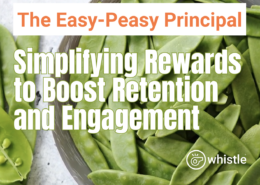 /wp-content/uploads/2023/10/Screenshot-2023-10-16-at-12.24.20-PM.png 950 1244 Chris Dornfeld /wp-content/uploads/2024/12/Dk-Blue-Whistle-Rewards-Logo-with-Text-300x110.png Chris Dornfeld2023-10-16 17:01:322023-10-16 17:01:32Simplifying Rewards to Boost Retention and Engagement
/wp-content/uploads/2023/10/Screenshot-2023-10-16-at-12.24.20-PM.png 950 1244 Chris Dornfeld /wp-content/uploads/2024/12/Dk-Blue-Whistle-Rewards-Logo-with-Text-300x110.png Chris Dornfeld2023-10-16 17:01:322023-10-16 17:01:32Simplifying Rewards to Boost Retention and Engagement
Building Great Cultures in a Post-Pandemic Era of Hybrid Work and Rapidly Changing Technology

The Irrefutable Carrot Conundrum: Why Positive Reinforcement Triumphs in the Workplace

The Carrot Chronicles: 12 Commandments of Influential Employee Rewards and Recognition
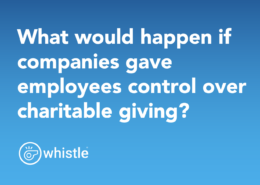 /wp-content/uploads/2023/08/Screenshot-2023-08-21-at-5.56.59-PM.png 984 1372 Chris Dornfeld /wp-content/uploads/2024/12/Dk-Blue-Whistle-Rewards-Logo-with-Text-300x110.png Chris Dornfeld2023-08-21 20:51:222023-08-21 22:59:27Creating Employee Loyalty with Corporate Philanthropy
/wp-content/uploads/2023/08/Screenshot-2023-08-21-at-5.56.59-PM.png 984 1372 Chris Dornfeld /wp-content/uploads/2024/12/Dk-Blue-Whistle-Rewards-Logo-with-Text-300x110.png Chris Dornfeld2023-08-21 20:51:222023-08-21 22:59:27Creating Employee Loyalty with Corporate Philanthropy /wp-content/uploads/2023/07/Screenshot-2023-07-14-at-10.34.33-AM-1.png 702 877 Drew Carter /wp-content/uploads/2024/12/Dk-Blue-Whistle-Rewards-Logo-with-Text-300x110.png Drew Carter2023-07-14 15:13:002023-07-14 16:16:50Maximizing Employee Retention in the Banking Industry
/wp-content/uploads/2023/07/Screenshot-2023-07-14-at-10.34.33-AM-1.png 702 877 Drew Carter /wp-content/uploads/2024/12/Dk-Blue-Whistle-Rewards-Logo-with-Text-300x110.png Drew Carter2023-07-14 15:13:002023-07-14 16:16:50Maximizing Employee Retention in the Banking Industry /wp-content/uploads/2023/07/Screenshot-2023-07-13-at-10.57.02-AM.png 498 622 Chris Dornfeld /wp-content/uploads/2024/12/Dk-Blue-Whistle-Rewards-Logo-with-Text-300x110.png Chris Dornfeld2023-07-13 15:33:292023-07-13 16:00:14The Importance of Timely Rewards in the Banking Industry
/wp-content/uploads/2023/07/Screenshot-2023-07-13-at-10.57.02-AM.png 498 622 Chris Dornfeld /wp-content/uploads/2024/12/Dk-Blue-Whistle-Rewards-Logo-with-Text-300x110.png Chris Dornfeld2023-07-13 15:33:292023-07-13 16:00:14The Importance of Timely Rewards in the Banking Industry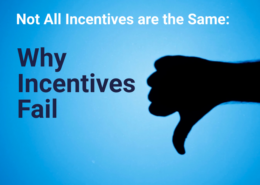 /wp-content/uploads/2023/07/Screenshot-2023-07-13-at-11.01.25-AM.png 550 688 Drew Carter /wp-content/uploads/2024/12/Dk-Blue-Whistle-Rewards-Logo-with-Text-300x110.png Drew Carter2023-07-13 02:20:122023-07-13 16:04:03Why Incentives Fail
/wp-content/uploads/2023/07/Screenshot-2023-07-13-at-11.01.25-AM.png 550 688 Drew Carter /wp-content/uploads/2024/12/Dk-Blue-Whistle-Rewards-Logo-with-Text-300x110.png Drew Carter2023-07-13 02:20:122023-07-13 16:04:03Why Incentives Fail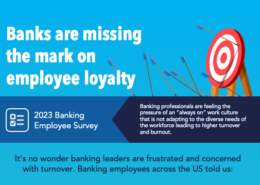 /wp-content/uploads/2023/06/FI-Bank-are-missing-the-mark.png 359 540 Chris Dornfeld /wp-content/uploads/2024/12/Dk-Blue-Whistle-Rewards-Logo-with-Text-300x110.png Chris Dornfeld2023-06-14 02:29:452023-06-14 02:40:35Banks are missing the mark on employee loyalty
/wp-content/uploads/2023/06/FI-Bank-are-missing-the-mark.png 359 540 Chris Dornfeld /wp-content/uploads/2024/12/Dk-Blue-Whistle-Rewards-Logo-with-Text-300x110.png Chris Dornfeld2023-06-14 02:29:452023-06-14 02:40:35Banks are missing the mark on employee loyalty /wp-content/uploads/2023/05/Custom-dimensions-1600x900-px-Custom-dimensions.jpeg 1440 1880 Chris Dornfeld /wp-content/uploads/2024/12/Dk-Blue-Whistle-Rewards-Logo-with-Text-300x110.png Chris Dornfeld2023-05-11 16:41:062023-05-11 16:42:14Making Employee Retention Personal: Meaning
/wp-content/uploads/2023/05/Custom-dimensions-1600x900-px-Custom-dimensions.jpeg 1440 1880 Chris Dornfeld /wp-content/uploads/2024/12/Dk-Blue-Whistle-Rewards-Logo-with-Text-300x110.png Chris Dornfeld2023-05-11 16:41:062023-05-11 16:42:14Making Employee Retention Personal: Meaning /wp-content/uploads/2022/08/FI-the-5-pitfalls-of-corporate-gift-cards.png 780 940 Drew Carter /wp-content/uploads/2024/12/Dk-Blue-Whistle-Rewards-Logo-with-Text-300x110.png Drew Carter2023-04-27 21:19:432023-05-03 16:32:51The 5 Pitfalls of Corporate Gift Cards
/wp-content/uploads/2022/08/FI-the-5-pitfalls-of-corporate-gift-cards.png 780 940 Drew Carter /wp-content/uploads/2024/12/Dk-Blue-Whistle-Rewards-Logo-with-Text-300x110.png Drew Carter2023-04-27 21:19:432023-05-03 16:32:51The 5 Pitfalls of Corporate Gift Cards
SMS Text Feature makes Whistle the easiest employee payments and reward tool ever

The Importance of Aligning Company Values with Business Trajectory

The Importance of Measuring Gender Inclusivity in the Workplace

Creating a Sense of Belonging For your Employees
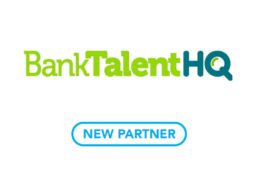 /wp-content/uploads/2023/03/Custom-dimensions-80x80-px-Logo-Custom-dimensions.jpeg 740 920 Chris Dornfeld /wp-content/uploads/2024/12/Dk-Blue-Whistle-Rewards-Logo-with-Text-300x110.png Chris Dornfeld2023-03-06 19:01:362023-03-06 19:05:36BankTalentHQ Announces Partnership with Whistle
/wp-content/uploads/2023/03/Custom-dimensions-80x80-px-Logo-Custom-dimensions.jpeg 740 920 Chris Dornfeld /wp-content/uploads/2024/12/Dk-Blue-Whistle-Rewards-Logo-with-Text-300x110.png Chris Dornfeld2023-03-06 19:01:362023-03-06 19:05:36BankTalentHQ Announces Partnership with Whistle
Making Employee Retention Personal: Belonging
 /wp-content/uploads/2024/12/Dk-Blue-Whistle-Rewards-Logo-with-Text-300x110.png 0 0 Chris Dornfeld /wp-content/uploads/2024/12/Dk-Blue-Whistle-Rewards-Logo-with-Text-300x110.png Chris Dornfeld2023-03-05 15:47:262024-03-06 21:56:48Requesting a Physical Card
/wp-content/uploads/2024/12/Dk-Blue-Whistle-Rewards-Logo-with-Text-300x110.png 0 0 Chris Dornfeld /wp-content/uploads/2024/12/Dk-Blue-Whistle-Rewards-Logo-with-Text-300x110.png Chris Dornfeld2023-03-05 15:47:262024-03-06 21:56:48Requesting a Physical Card
Employee Engagement in the Multigenerational Workplace
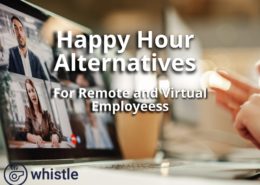
Great alternatives to happy hour for remote and virtual employees.

Moving Beyond Black History Month to Create an Inclusive Workplace
 /wp-content/uploads/2023/02/Building-Inclusion-and-Belonging-with-Whistle-Graphic.png 300 300 Chris Dornfeld /wp-content/uploads/2024/12/Dk-Blue-Whistle-Rewards-Logo-with-Text-300x110.png Chris Dornfeld2023-02-17 00:19:452023-02-17 02:57:47Building Inclusion and Belonging with Whistle
/wp-content/uploads/2023/02/Building-Inclusion-and-Belonging-with-Whistle-Graphic.png 300 300 Chris Dornfeld /wp-content/uploads/2024/12/Dk-Blue-Whistle-Rewards-Logo-with-Text-300x110.png Chris Dornfeld2023-02-17 00:19:452023-02-17 02:57:47Building Inclusion and Belonging with Whistle
The Importance of Creating a Personalized Employee Experience – Feeling Valued

Most Leaders Focus On The Wrong Retention Problems.

Keep Your Virtual Employee Engaged During the Long Winter
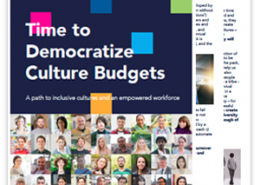 /wp-content/uploads/2023/02/Time-to-democratize-culture-cover.png 300 300 Chris Dornfeld /wp-content/uploads/2024/12/Dk-Blue-Whistle-Rewards-Logo-with-Text-300x110.png Chris Dornfeld2023-02-03 19:43:482023-03-22 15:59:16Time to Democratize Culture Budgets
/wp-content/uploads/2023/02/Time-to-democratize-culture-cover.png 300 300 Chris Dornfeld /wp-content/uploads/2024/12/Dk-Blue-Whistle-Rewards-Logo-with-Text-300x110.png Chris Dornfeld2023-02-03 19:43:482023-03-22 15:59:16Time to Democratize Culture Budgets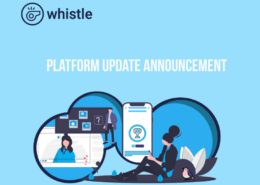 /wp-content/uploads/2023/01/Custom-dimensions920-x740px-Custom-dimensions-Custom-dimensions-Custom-dimensions.jpeg 740 920 Chris Dornfeld /wp-content/uploads/2024/12/Dk-Blue-Whistle-Rewards-Logo-with-Text-300x110.png Chris Dornfeld2023-01-27 22:16:412023-02-05 18:48:55Whistle System Platform Updates January 2023
/wp-content/uploads/2023/01/Custom-dimensions920-x740px-Custom-dimensions-Custom-dimensions-Custom-dimensions.jpeg 740 920 Chris Dornfeld /wp-content/uploads/2024/12/Dk-Blue-Whistle-Rewards-Logo-with-Text-300x110.png Chris Dornfeld2023-01-27 22:16:412023-02-05 18:48:55Whistle System Platform Updates January 2023
The importance of creating a personalized employee experience: Growth and Mastery

The importance of creating a personalized employee experience: Expectation and Capabilities
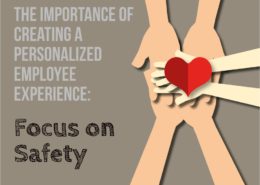
The importance of creating a personalized employee experience: Focus on Safety

Creating a personalized employee experience can help improve retention and loyalty

KNOWING WHERE TO INVEST YOUR CULTURE DOLLARS TO IMPROVE LOYALTY SHOULD BE YOUR #1 PRIORITY
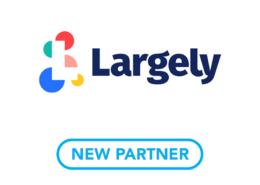 /wp-content/uploads/2022/12/FI-Largely.png 780 940 Chris Dornfeld /wp-content/uploads/2024/12/Dk-Blue-Whistle-Rewards-Logo-with-Text-300x110.png Chris Dornfeld2022-12-13 11:23:192024-02-15 16:07:23Whistle partners with Largely, the Candidate & Employee Experience Platform
/wp-content/uploads/2022/12/FI-Largely.png 780 940 Chris Dornfeld /wp-content/uploads/2024/12/Dk-Blue-Whistle-Rewards-Logo-with-Text-300x110.png Chris Dornfeld2022-12-13 11:23:192024-02-15 16:07:23Whistle partners with Largely, the Candidate & Employee Experience Platform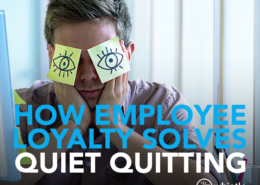 /wp-content/uploads/2022/12/FI-Quiet-Quitting.png 780 940 Chris Dornfeld /wp-content/uploads/2024/12/Dk-Blue-Whistle-Rewards-Logo-with-Text-300x110.png Chris Dornfeld2022-12-08 04:38:142022-12-11 19:31:52HOW EMPLOYEE LOYALTY SOLVES QUIET QUITTING
/wp-content/uploads/2022/12/FI-Quiet-Quitting.png 780 940 Chris Dornfeld /wp-content/uploads/2024/12/Dk-Blue-Whistle-Rewards-Logo-with-Text-300x110.png Chris Dornfeld2022-12-08 04:38:142022-12-11 19:31:52HOW EMPLOYEE LOYALTY SOLVES QUIET QUITTING /wp-content/uploads/2022/12/FI-Magic-Links-Whistle-App.png 780 940 Chris Dornfeld /wp-content/uploads/2024/12/Dk-Blue-Whistle-Rewards-Logo-with-Text-300x110.png Chris Dornfeld2022-12-02 22:23:482022-12-05 22:08:03Magic Links – New Whistle Feature
/wp-content/uploads/2022/12/FI-Magic-Links-Whistle-App.png 780 940 Chris Dornfeld /wp-content/uploads/2024/12/Dk-Blue-Whistle-Rewards-Logo-with-Text-300x110.png Chris Dornfeld2022-12-02 22:23:482022-12-05 22:08:03Magic Links – New Whistle Feature /wp-content/uploads/2022/12/FI-employee-loyalty-holiday-gift-ideas.png 900 1200 Chris Dornfeld /wp-content/uploads/2024/12/Dk-Blue-Whistle-Rewards-Logo-with-Text-300x110.png Chris Dornfeld2022-12-02 15:40:532022-12-02 19:09:32HOLIDAY GIFT AND PARTY IDEAS THAT DRIVE EMPLOYEE LOYALTY
/wp-content/uploads/2022/12/FI-employee-loyalty-holiday-gift-ideas.png 900 1200 Chris Dornfeld /wp-content/uploads/2024/12/Dk-Blue-Whistle-Rewards-Logo-with-Text-300x110.png Chris Dornfeld2022-12-02 15:40:532022-12-02 19:09:32HOLIDAY GIFT AND PARTY IDEAS THAT DRIVE EMPLOYEE LOYALTY /wp-content/uploads/2022/12/Jennifer-Ernst-Employee-Loyalty-Leader.png 900 1200 Chris Dornfeld /wp-content/uploads/2024/12/Dk-Blue-Whistle-Rewards-Logo-with-Text-300x110.png Chris Dornfeld2022-12-01 23:10:012022-12-02 17:55:29Employee Loyalty Leader Jennifer Ernst
/wp-content/uploads/2022/12/Jennifer-Ernst-Employee-Loyalty-Leader.png 900 1200 Chris Dornfeld /wp-content/uploads/2024/12/Dk-Blue-Whistle-Rewards-Logo-with-Text-300x110.png Chris Dornfeld2022-12-01 23:10:012022-12-02 17:55:29Employee Loyalty Leader Jennifer Ernst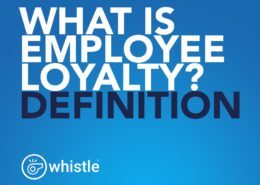 /wp-content/uploads/2022/11/Employee-Loyalty-Definition-FI-1.jpg 780 940 Ben Valenti /wp-content/uploads/2024/12/Dk-Blue-Whistle-Rewards-Logo-with-Text-300x110.png Ben Valenti2022-11-10 22:57:252022-11-11 00:42:25Employee Loyalty Definition
/wp-content/uploads/2022/11/Employee-Loyalty-Definition-FI-1.jpg 780 940 Ben Valenti /wp-content/uploads/2024/12/Dk-Blue-Whistle-Rewards-Logo-with-Text-300x110.png Ben Valenti2022-11-10 22:57:252022-11-11 00:42:25Employee Loyalty Definition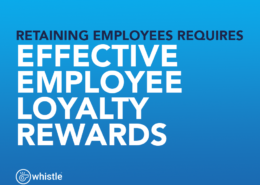
Effective Employee Loyalty Rewards Are Required to Retain Employees
 /wp-content/uploads/2022/09/Metrics-FI.png 780 940 Ben Valenti /wp-content/uploads/2024/12/Dk-Blue-Whistle-Rewards-Logo-with-Text-300x110.png Ben Valenti2022-09-22 20:55:162022-09-23 16:30:38Metrics – New Feature
/wp-content/uploads/2022/09/Metrics-FI.png 780 940 Ben Valenti /wp-content/uploads/2024/12/Dk-Blue-Whistle-Rewards-Logo-with-Text-300x110.png Ben Valenti2022-09-22 20:55:162022-09-23 16:30:38Metrics – New Feature /wp-content/uploads/2022/09/Whitney-Kenter.png 780 940 Chris Dornfeld /wp-content/uploads/2024/12/Dk-Blue-Whistle-Rewards-Logo-with-Text-300x110.png Chris Dornfeld2022-09-20 01:43:072022-09-21 17:03:55Employee Loyalty Leaders with Whitney Kenter
/wp-content/uploads/2022/09/Whitney-Kenter.png 780 940 Chris Dornfeld /wp-content/uploads/2024/12/Dk-Blue-Whistle-Rewards-Logo-with-Text-300x110.png Chris Dornfeld2022-09-20 01:43:072022-09-21 17:03:55Employee Loyalty Leaders with Whitney Kenter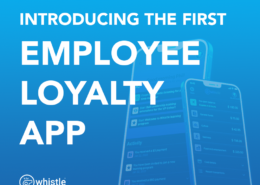 /wp-content/uploads/2022/09/The-first-employee-loyalty-app.png 780 940 Chris Dornfeld /wp-content/uploads/2024/12/Dk-Blue-Whistle-Rewards-Logo-with-Text-300x110.png Chris Dornfeld2022-09-13 04:52:092022-09-13 05:39:544 Key Elements of an Employee Loyalty App
/wp-content/uploads/2022/09/The-first-employee-loyalty-app.png 780 940 Chris Dornfeld /wp-content/uploads/2024/12/Dk-Blue-Whistle-Rewards-Logo-with-Text-300x110.png Chris Dornfeld2022-09-13 04:52:092022-09-13 05:39:544 Key Elements of an Employee Loyalty App /wp-content/uploads/2022/09/FI-ELL-David-Klein.png 780 940 Chris Dornfeld /wp-content/uploads/2024/12/Dk-Blue-Whistle-Rewards-Logo-with-Text-300x110.png Chris Dornfeld2022-09-01 19:19:292022-09-30 17:00:27Employee Loyalty Leaders with David Klein
/wp-content/uploads/2022/09/FI-ELL-David-Klein.png 780 940 Chris Dornfeld /wp-content/uploads/2024/12/Dk-Blue-Whistle-Rewards-Logo-with-Text-300x110.png Chris Dornfeld2022-09-01 19:19:292022-09-30 17:00:27Employee Loyalty Leaders with David Klein /wp-content/uploads/2022/08/FI-Challenges-with-employee-onboarding.png 780 940 Chris Dornfeld /wp-content/uploads/2024/12/Dk-Blue-Whistle-Rewards-Logo-with-Text-300x110.png Chris Dornfeld2022-08-23 21:02:002022-08-24 14:24:22Challenges with Employee Onboarding (and How to Solve Them)
/wp-content/uploads/2022/08/FI-Challenges-with-employee-onboarding.png 780 940 Chris Dornfeld /wp-content/uploads/2024/12/Dk-Blue-Whistle-Rewards-Logo-with-Text-300x110.png Chris Dornfeld2022-08-23 21:02:002022-08-24 14:24:22Challenges with Employee Onboarding (and How to Solve Them)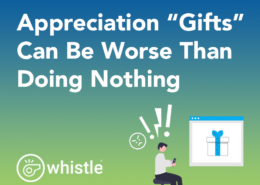 /wp-content/uploads/2022/08/FI-Appreciation-Gifts.png 780 940 Ben Valenti /wp-content/uploads/2024/12/Dk-Blue-Whistle-Rewards-Logo-with-Text-300x110.png Ben Valenti2022-08-18 01:05:102022-08-18 19:36:50Employee Appreciation “Gifts” Can Be Worse Than Doing Nothing
/wp-content/uploads/2022/08/FI-Appreciation-Gifts.png 780 940 Ben Valenti /wp-content/uploads/2024/12/Dk-Blue-Whistle-Rewards-Logo-with-Text-300x110.png Ben Valenti2022-08-18 01:05:102022-08-18 19:36:50Employee Appreciation “Gifts” Can Be Worse Than Doing Nothing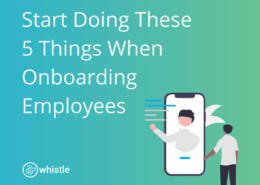 /wp-content/uploads/2022/08/Whistle-5-Onboarding-Things_thumbnail.png 780 940 Chris Dornfeld /wp-content/uploads/2024/12/Dk-Blue-Whistle-Rewards-Logo-with-Text-300x110.png Chris Dornfeld2022-08-16 16:10:442022-08-16 21:50:30Start Doing These 5 Things When Onboarding New Employees
/wp-content/uploads/2022/08/Whistle-5-Onboarding-Things_thumbnail.png 780 940 Chris Dornfeld /wp-content/uploads/2024/12/Dk-Blue-Whistle-Rewards-Logo-with-Text-300x110.png Chris Dornfeld2022-08-16 16:10:442022-08-16 21:50:30Start Doing These 5 Things When Onboarding New Employees /wp-content/uploads/2022/07/FI-Employee-Loyalty-Katie-Harman.png 780 940 Chris Dornfeld /wp-content/uploads/2024/12/Dk-Blue-Whistle-Rewards-Logo-with-Text-300x110.png Chris Dornfeld2022-08-08 13:52:042022-09-30 17:01:36Employee Loyalty Leaders with Katie Harman
/wp-content/uploads/2022/07/FI-Employee-Loyalty-Katie-Harman.png 780 940 Chris Dornfeld /wp-content/uploads/2024/12/Dk-Blue-Whistle-Rewards-Logo-with-Text-300x110.png Chris Dornfeld2022-08-08 13:52:042022-09-30 17:01:36Employee Loyalty Leaders with Katie Harman /wp-content/uploads/2022/08/Whistle-Blog_Burnout_940x780-1.png 780 940 Chris Dornfeld /wp-content/uploads/2024/12/Dk-Blue-Whistle-Rewards-Logo-with-Text-300x110.png Chris Dornfeld2022-08-04 22:57:272022-08-05 02:03:24No One is Immune to Employee Burnout — Not Even HR
/wp-content/uploads/2022/08/Whistle-Blog_Burnout_940x780-1.png 780 940 Chris Dornfeld /wp-content/uploads/2024/12/Dk-Blue-Whistle-Rewards-Logo-with-Text-300x110.png Chris Dornfeld2022-08-04 22:57:272022-08-05 02:03:24No One is Immune to Employee Burnout — Not Even HR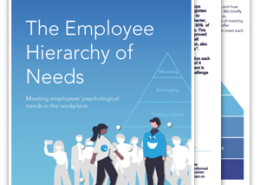 /wp-content/uploads/2022/07/employee-hierarchy-of-needs.png 300 300 Chris Dornfeld /wp-content/uploads/2024/12/Dk-Blue-Whistle-Rewards-Logo-with-Text-300x110.png Chris Dornfeld2022-07-25 18:08:332022-11-07 21:54:25The Employee Hierarchy of Needs
/wp-content/uploads/2022/07/employee-hierarchy-of-needs.png 300 300 Chris Dornfeld /wp-content/uploads/2024/12/Dk-Blue-Whistle-Rewards-Logo-with-Text-300x110.png Chris Dornfeld2022-07-25 18:08:332022-11-07 21:54:25The Employee Hierarchy of Needs /wp-content/uploads/2022/07/FI-Jennifer-Patterson.png 780 940 Chris Dornfeld /wp-content/uploads/2024/12/Dk-Blue-Whistle-Rewards-Logo-with-Text-300x110.png Chris Dornfeld2022-07-08 14:23:382022-09-30 17:02:42Employee Loyalty Leaders with Jennifer Patterson
/wp-content/uploads/2022/07/FI-Jennifer-Patterson.png 780 940 Chris Dornfeld /wp-content/uploads/2024/12/Dk-Blue-Whistle-Rewards-Logo-with-Text-300x110.png Chris Dornfeld2022-07-08 14:23:382022-09-30 17:02:42Employee Loyalty Leaders with Jennifer Patterson /wp-content/uploads/2022/06/FI-Rob-Seay.png 780 940 Chris Dornfeld /wp-content/uploads/2024/12/Dk-Blue-Whistle-Rewards-Logo-with-Text-300x110.png Chris Dornfeld2022-06-21 17:56:012022-09-30 17:03:48Employee Loyalty Leaders with Rob Seay
/wp-content/uploads/2022/06/FI-Rob-Seay.png 780 940 Chris Dornfeld /wp-content/uploads/2024/12/Dk-Blue-Whistle-Rewards-Logo-with-Text-300x110.png Chris Dornfeld2022-06-21 17:56:012022-09-30 17:03:48Employee Loyalty Leaders with Rob Seay /wp-content/uploads/2022/06/FI-New-Feature-Slack-Integration.png 780 940 Ben Valenti /wp-content/uploads/2024/12/Dk-Blue-Whistle-Rewards-Logo-with-Text-300x110.png Ben Valenti2022-06-01 21:31:492023-04-07 18:32:37New Feature – Slack Integration
/wp-content/uploads/2022/06/FI-New-Feature-Slack-Integration.png 780 940 Ben Valenti /wp-content/uploads/2024/12/Dk-Blue-Whistle-Rewards-Logo-with-Text-300x110.png Ben Valenti2022-06-01 21:31:492023-04-07 18:32:37New Feature – Slack Integration /wp-content/uploads/2022/05/FI-150B-industry.png 780 940 Ben Valenti /wp-content/uploads/2024/12/Dk-Blue-Whistle-Rewards-Logo-with-Text-300x110.png Ben Valenti2022-05-27 19:44:302022-05-27 20:45:03The $150 Billion Industry No One Likes
/wp-content/uploads/2022/05/FI-150B-industry.png 780 940 Ben Valenti /wp-content/uploads/2024/12/Dk-Blue-Whistle-Rewards-Logo-with-Text-300x110.png Ben Valenti2022-05-27 19:44:302022-05-27 20:45:03The $150 Billion Industry No One Likes
Pizza Parties Are Not the Answer to Your Retention Problems
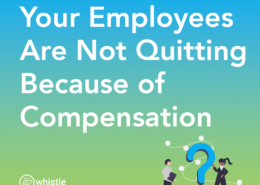
Your Employees Are Not Quitting Because of Compensation
 /wp-content/uploads/2022/03/Press-Release-1.png 780 940 Chris Dornfeld /wp-content/uploads/2024/12/Dk-Blue-Whistle-Rewards-Logo-with-Text-300x110.png Chris Dornfeld2022-03-01 16:35:112022-03-13 16:56:42Whistle Closes on $3.2 Million Seed Funding Round
/wp-content/uploads/2022/03/Press-Release-1.png 780 940 Chris Dornfeld /wp-content/uploads/2024/12/Dk-Blue-Whistle-Rewards-Logo-with-Text-300x110.png Chris Dornfeld2022-03-01 16:35:112022-03-13 16:56:42Whistle Closes on $3.2 Million Seed Funding Round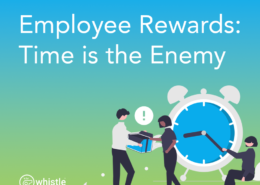 /wp-content/uploads/2022/01/FI-Time-is-the-enemy.png 780 940 Drew Carter /wp-content/uploads/2024/12/Dk-Blue-Whistle-Rewards-Logo-with-Text-300x110.png Drew Carter2022-01-31 19:47:552022-02-01 20:06:42Employee Rewards: Time is the Enemy
/wp-content/uploads/2022/01/FI-Time-is-the-enemy.png 780 940 Drew Carter /wp-content/uploads/2024/12/Dk-Blue-Whistle-Rewards-Logo-with-Text-300x110.png Drew Carter2022-01-31 19:47:552022-02-01 20:06:42Employee Rewards: Time is the Enemy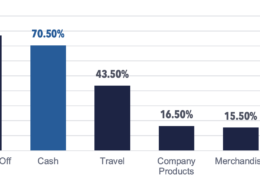 /wp-content/uploads/2022/01/Screenshot-2023-06-12-at-10.07.28-PM.png 780 1854 Chris Dornfeld /wp-content/uploads/2024/12/Dk-Blue-Whistle-Rewards-Logo-with-Text-300x110.png Chris Dornfeld2022-01-13 02:39:222023-06-13 03:15:49Data and Articles on Employee Loyalty in Banking
/wp-content/uploads/2022/01/Screenshot-2023-06-12-at-10.07.28-PM.png 780 1854 Chris Dornfeld /wp-content/uploads/2024/12/Dk-Blue-Whistle-Rewards-Logo-with-Text-300x110.png Chris Dornfeld2022-01-13 02:39:222023-06-13 03:15:49Data and Articles on Employee Loyalty in Banking /wp-content/uploads/2021/11/4-elements-of-onboarding.png 780 940 Chris Dornfeld /wp-content/uploads/2024/12/Dk-Blue-Whistle-Rewards-Logo-with-Text-300x110.png Chris Dornfeld2021-11-13 14:36:442022-09-13 05:42:48The 4 Elements of Great Employee Onboarding
/wp-content/uploads/2021/11/4-elements-of-onboarding.png 780 940 Chris Dornfeld /wp-content/uploads/2024/12/Dk-Blue-Whistle-Rewards-Logo-with-Text-300x110.png Chris Dornfeld2021-11-13 14:36:442022-09-13 05:42:48The 4 Elements of Great Employee Onboarding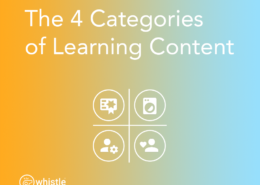 /wp-content/uploads/2021/11/fi-4-categories-of-learning-content.png 780 940 Chris Dornfeld /wp-content/uploads/2024/12/Dk-Blue-Whistle-Rewards-Logo-with-Text-300x110.png Chris Dornfeld2021-11-09 03:57:252021-11-09 19:46:05The 4 Categories of Learning Content
/wp-content/uploads/2021/11/fi-4-categories-of-learning-content.png 780 940 Chris Dornfeld /wp-content/uploads/2024/12/Dk-Blue-Whistle-Rewards-Logo-with-Text-300x110.png Chris Dornfeld2021-11-09 03:57:252021-11-09 19:46:05The 4 Categories of Learning Content /wp-content/uploads/2021/10/fi-microlearning-best-practices.png 780 940 Ben Valenti /wp-content/uploads/2024/12/Dk-Blue-Whistle-Rewards-Logo-with-Text-300x110.png Ben Valenti2021-10-14 18:00:142021-10-14 22:00:545 Microlearning Best Practices
/wp-content/uploads/2021/10/fi-microlearning-best-practices.png 780 940 Ben Valenti /wp-content/uploads/2024/12/Dk-Blue-Whistle-Rewards-Logo-with-Text-300x110.png Ben Valenti2021-10-14 18:00:142021-10-14 22:00:545 Microlearning Best Practices /wp-content/uploads/2021/10/FI-Employee-Turnover-so-high.png 780 940 Chris Dornfeld /wp-content/uploads/2024/12/Dk-Blue-Whistle-Rewards-Logo-with-Text-300x110.png Chris Dornfeld2021-10-13 18:17:522021-10-14 22:02:14Employee turnover is at an all time high
/wp-content/uploads/2021/10/FI-Employee-Turnover-so-high.png 780 940 Chris Dornfeld /wp-content/uploads/2024/12/Dk-Blue-Whistle-Rewards-Logo-with-Text-300x110.png Chris Dornfeld2021-10-13 18:17:522021-10-14 22:02:14Employee turnover is at an all time high
The hidden risk of diversity training, and what you should do about it

Manager training is costing you millions, and you don’t even know it
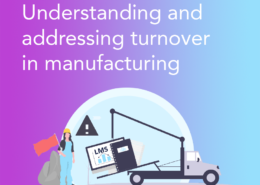 /wp-content/uploads/2021/08/FI-Understanding-and-addressing-turnover.png 780 940 Drew Carter /wp-content/uploads/2024/12/Dk-Blue-Whistle-Rewards-Logo-with-Text-300x110.png Drew Carter2021-08-21 14:17:202021-11-28 20:02:51Understanding and Addressing Turnover in Manufacturing
/wp-content/uploads/2021/08/FI-Understanding-and-addressing-turnover.png 780 940 Drew Carter /wp-content/uploads/2024/12/Dk-Blue-Whistle-Rewards-Logo-with-Text-300x110.png Drew Carter2021-08-21 14:17:202021-11-28 20:02:51Understanding and Addressing Turnover in Manufacturing /wp-content/uploads/2021/08/FI-What-is-Microlearning-2.png 780 940 Chris Dornfeld /wp-content/uploads/2024/12/Dk-Blue-Whistle-Rewards-Logo-with-Text-300x110.png Chris Dornfeld2021-08-20 04:07:582021-09-22 14:25:12What is Microlearning? (And what are the benefits?)
/wp-content/uploads/2021/08/FI-What-is-Microlearning-2.png 780 940 Chris Dornfeld /wp-content/uploads/2024/12/Dk-Blue-Whistle-Rewards-Logo-with-Text-300x110.png Chris Dornfeld2021-08-20 04:07:582021-09-22 14:25:12What is Microlearning? (And what are the benefits?) /wp-content/uploads/2021/04/channel-learning-is-broken-whitepaper-cover.png 300 300 Chris Dornfeld /wp-content/uploads/2024/12/Dk-Blue-Whistle-Rewards-Logo-with-Text-300x110.png Chris Dornfeld2021-05-14 20:25:472024-01-11 21:55:12Channel Learning is Broken, and Microlearning Can Fix It
/wp-content/uploads/2021/04/channel-learning-is-broken-whitepaper-cover.png 300 300 Chris Dornfeld /wp-content/uploads/2024/12/Dk-Blue-Whistle-Rewards-Logo-with-Text-300x110.png Chris Dornfeld2021-05-14 20:25:472024-01-11 21:55:12Channel Learning is Broken, and Microlearning Can Fix It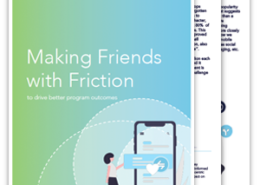 /wp-content/uploads/2021/05/making-friends-with-friction-cover.png 300 300 Drew Carter /wp-content/uploads/2024/12/Dk-Blue-Whistle-Rewards-Logo-with-Text-300x110.png Drew Carter2021-03-05 08:50:002024-01-11 21:54:47Making Friends with Friction
/wp-content/uploads/2021/05/making-friends-with-friction-cover.png 300 300 Drew Carter /wp-content/uploads/2024/12/Dk-Blue-Whistle-Rewards-Logo-with-Text-300x110.png Drew Carter2021-03-05 08:50:002024-01-11 21:54:47Making Friends with Friction /wp-content/uploads/2021/03/microlearning-banner.png 480 1440 Chris Dornfeld /wp-content/uploads/2024/12/Dk-Blue-Whistle-Rewards-Logo-with-Text-300x110.png Chris Dornfeld2021-03-01 20:50:552022-12-08 05:03:45How Microlearning Will Transform the Sales Channel
/wp-content/uploads/2021/03/microlearning-banner.png 480 1440 Chris Dornfeld /wp-content/uploads/2024/12/Dk-Blue-Whistle-Rewards-Logo-with-Text-300x110.png Chris Dornfeld2021-03-01 20:50:552022-12-08 05:03:45How Microlearning Will Transform the Sales Channel







